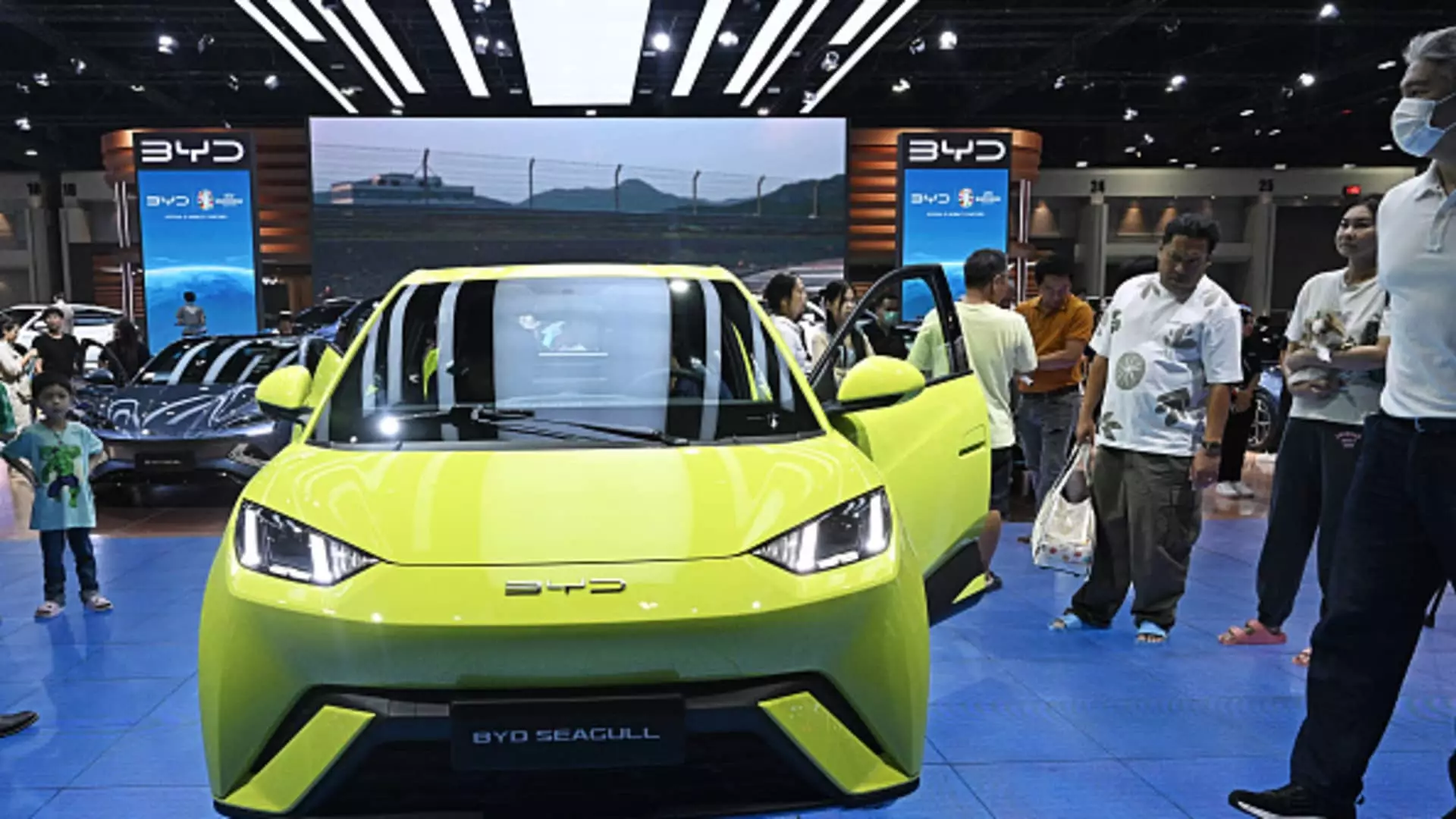The European Union has been taking steps to address the issue of low-priced, subsidized imports of Chinese electric vehicles (EVs). While the standard duty on imported EVs is 10%, the EU is expected to increase this rate for Chinese EVs starting July 4. Analysts have predicted that the tariff rate could potentially be raised to as high as 30-50%, with a probability of 40% for such an increase.
There are conflicting views on the exact tariff rates that will be imposed. Some experts, such as Anthony Sassine, anticipate the rates to fall between 10% and 20%, while others believe it could go as high as 25-30%. The outcome of the recent European Parliament elections, where the European People's Party gained seats, may influence the final decision on the tariff rates.
Despite the potential increase in tariffs, Chinese EV manufacturers are seen as highly competitive due to their efficiency and innovation. It is believed that even with higher tariffs, Chinese manufacturers will still be more competitive than their EU counterparts. The Chinese government's support and incentives have led to the rapid growth of the EV industry in China, raising concerns of overcapacity in the U.S. and Europe.
The United States has already taken steps to address the influx of Chinese EV imports by significantly raising tariffs. Energy Secretary Jennifer Granholm warned of the possibility of China flooding the U.S. market with their electric vehicles. Similarly, Turkey has announced additional tariffs on imports of vehicles from China. These measures reflect the growing concerns over the impact of Chinese EVs on global markets.
Chinese EV manufacturers are actively exploring opportunities in the European market. Companies like Xpeng, BYD, and Nio have been showcasing their models in Europe and even establishing production facilities in countries like Hungary and Spain. The goal is to mitigate the impact of tariffs by setting up local production sites within the EU, thus avoiding or minimizing the effects of trade barriers.
As the EU prepares to unveil its tariff rate plan for Chinese EVs, the industry is bracing for potential changes in pricing and market dynamics. The competition between Chinese and European manufacturers is intensifying, with both sides seeking to adapt to the evolving trade landscape. While tariffs may pose challenges, they also present opportunities for innovation and collaboration within the electric vehicle market.
The impact of tariffs on Chinese electric vehicles in the European Union is a complex issue that requires careful consideration of economic, political, and industry dynamics. The decisions made by regulatory bodies will not only shape the future of the EV market in Europe but also have implications for global trade relations. It is essential for stakeholders to closely monitor these developments and adapt their strategies to navigate the changing landscape of the electric vehicle industry.

